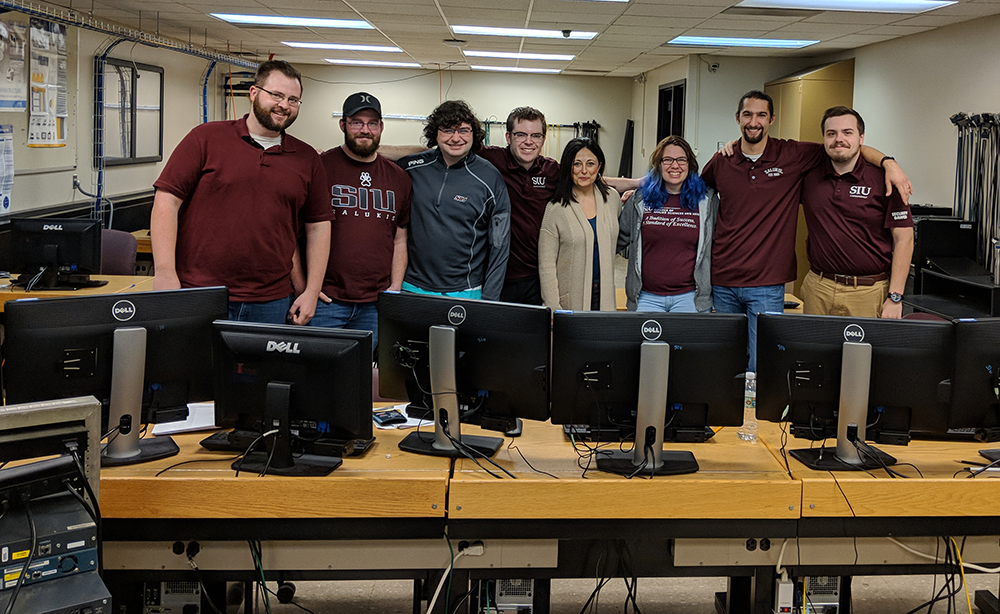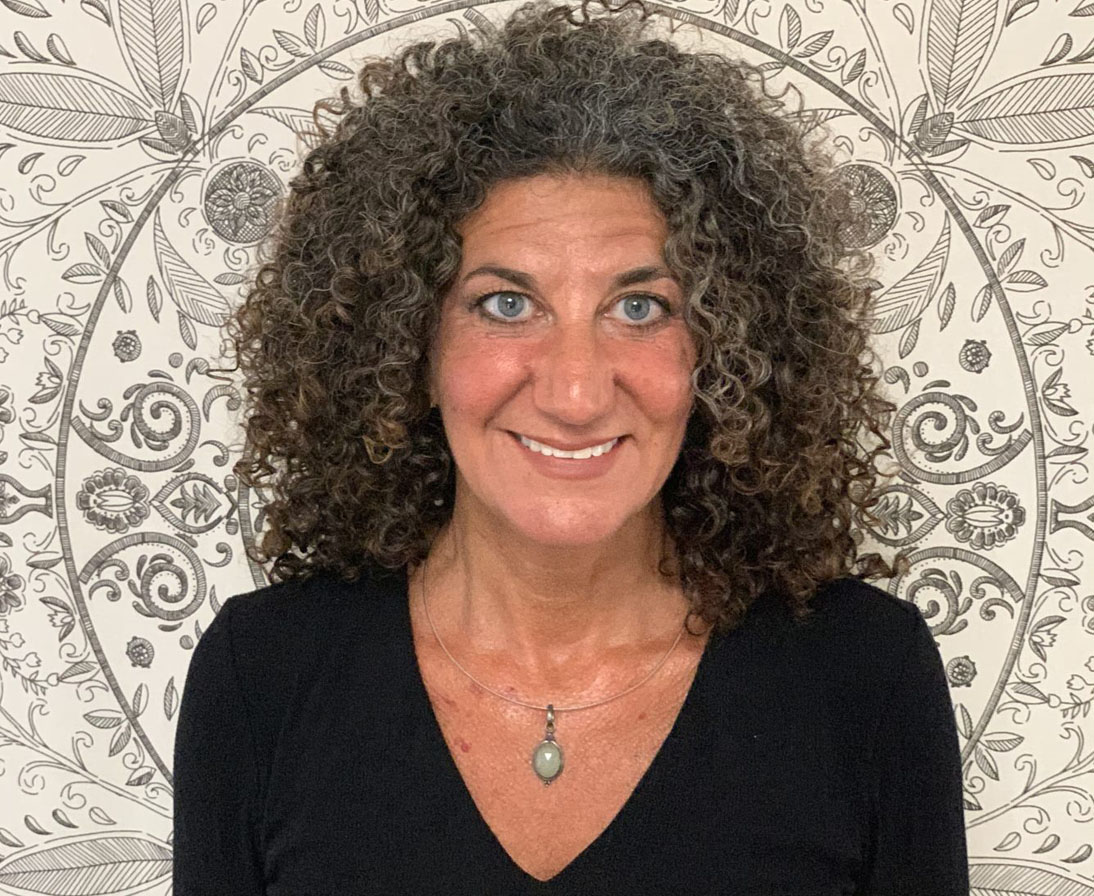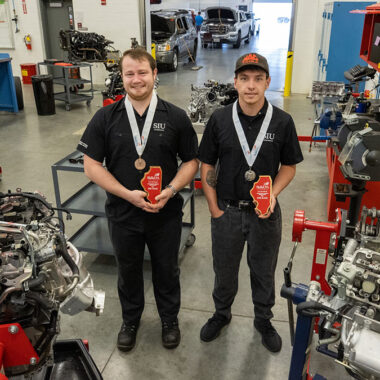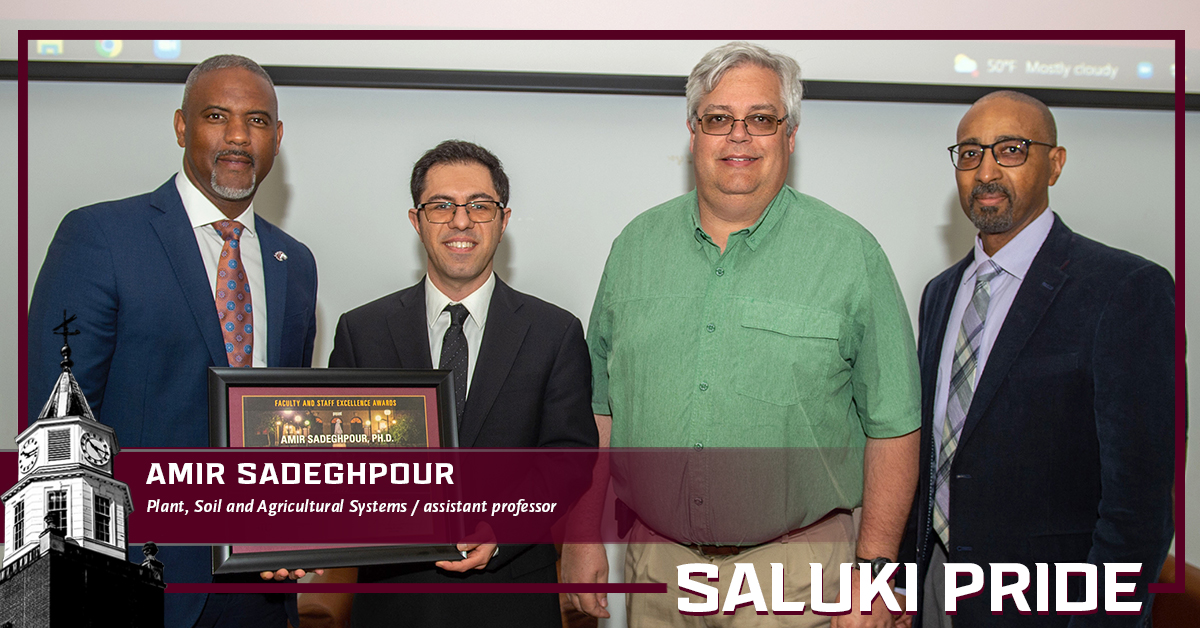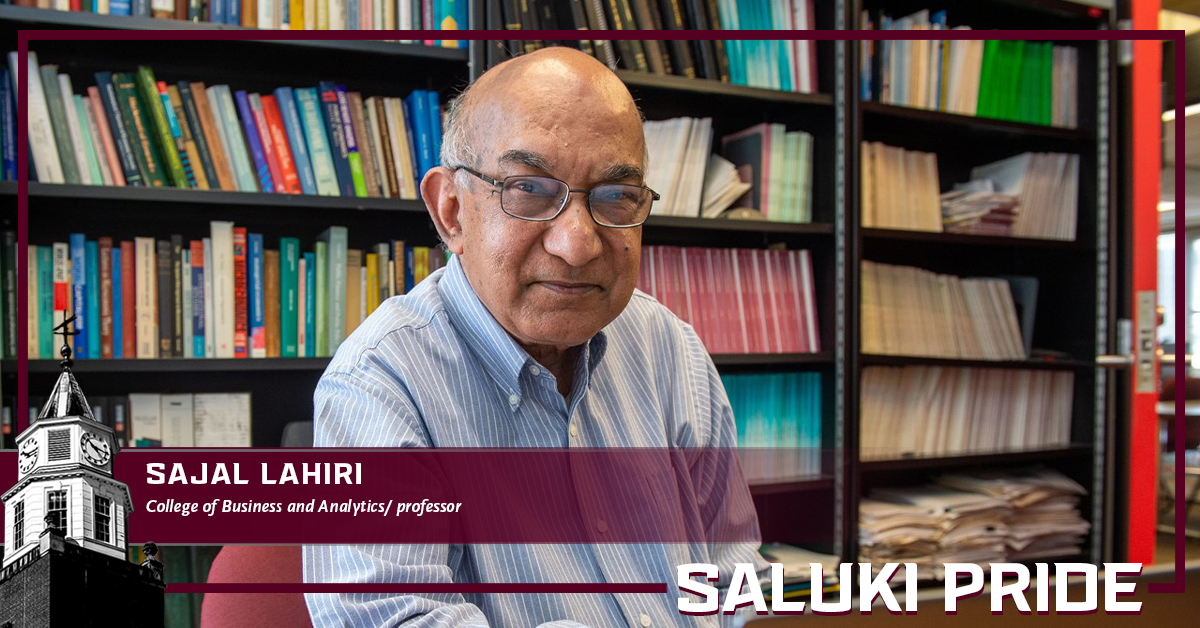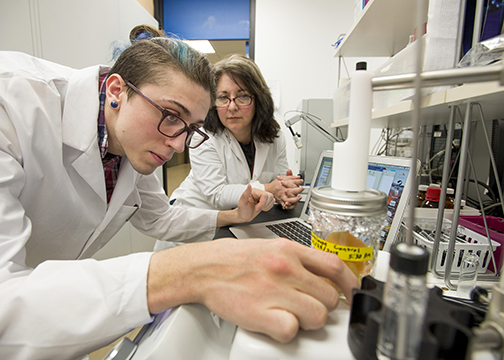
Walk through your typical grocery store’s produce section and you’ll often see rows and rows of delectably pre-sliced and pre-packaged fruits.
But while the preparation makes the fruits more convenient to eat, it also starts an invisible clock ticking. The sliced fruits spoil much faster once their vulnerable insides are exposed to the air. To combat this, food companies have come up with thin, invisible coatings that not only protect the fruit, but also are edible and safe.
A student at Southern Illinois University Carbondale is using high-tech scientific instruments to learn more about what happens to fruits and how to prolong their shelf life. Along the way, he’s gaining valuable experience to help him with his job search after graduation.
Michael Davies, a senior in chemistry, is working with Ruplal Choudhary, associate professor of plant, soil and agricultural systems, on research monitoring the respiration products of fruits and vegetables covered with edible coatings that are intended to reduce spoilage and extend shelf-life.
Davies is applying head space-solid phase microextraction and gas chromatography mass spectrometry to identify the volatile products associated with normal respiration and early signs of microbial breakdown in the fruits.
Working in a lab with Mary Kinsel, associate scientist in the Office of Sponsored Projects Administration, Davies analyzes the different types of gases emitted from the fruit throughout the period of time that it deteriorates. He’s hoping to spot trends while measuring their abundance, to see if they change after being covered by different types of edible coatings, such as alginate and liposomes.
“Once a fruit has been peeled and cut into smaller portions its shelf life significantly decreases” Davies said. “Most fruits that you see today in a grocery store that are prepackaged and cut into small, bite-sized pieces are actually already using an edible coating of some sort.”
Better understanding how the sliced fruits interact with air, how they break down and how the coatings work could save farmers, grocers and consumers significant costs associated with food spoilage. It may also encourage more people to make healthier food choices.
Involving undergraduates in real-world, hands-on research is a priority at SIU. Davies said being involved has given him a much more positive outlook.
“I’m a senior right now, and have been worrying about job prospects like any senior does,” he said. “Having the added experience of working in a setting that is outside of the classroom, and working with real world problems and projects will help me gain the experience that I will need to be effective in whichever lab I may end up in in the future.”
